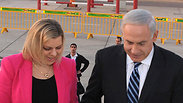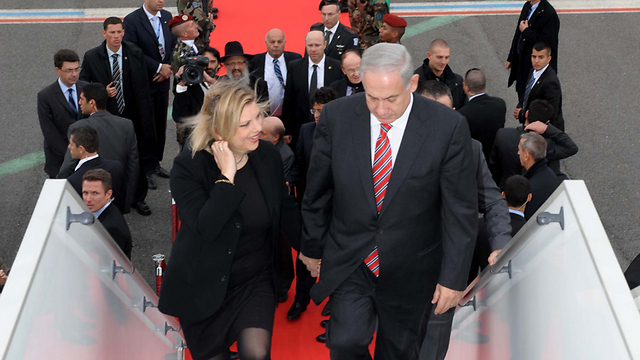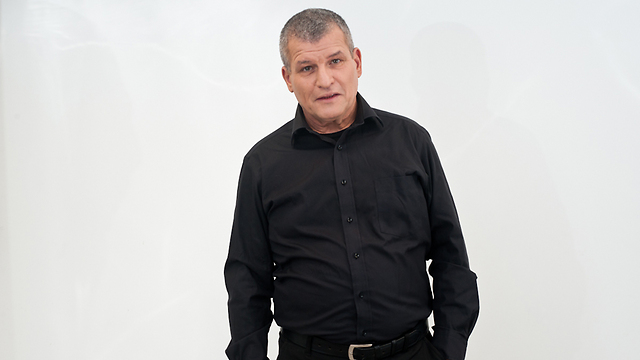
It has emerged that Attorney General Yehuda Weinstein awarded Netanyahu preferential treatment ("excessive caution") due to the "public and institutional implications of an investigation into the prime minister."
Throughout the case - some three years - Netanyahu has never been questioned or called in for investigation. The state's response came following a petition by MK Mickey Rosenthal against a decision by Weinstein not to open a criminal investigation into Netanyahu's actions in what has been dubbed the "Bibitours" affair.
"Bibitours" refers to the funding of overseas flights by the Netanyahu family during his terms as a Knesset member and government minister, an affair first exposed by Channel 10 television.
Most of the arguments presented in the petition, which was filed last month, stem from a decision not to launch a criminal investigation, taken after a "preliminary inspection", which was apparently carried out arbitrarily and with no clear criteria.
"It seems that when choosing this route, it is in fact in most cases in order to prevent the possibility of a criminal investigation being conducted," the petition states.
In addition, the petitioners argue, the decision was taken without the prime minister himself being questioned, only his attorney David Shimron. Furthermore, they claim, the state drew out the "preliminary inspection" for more than three years without any justification. The argument is in part due to the fact that one of the reasons for not opening a criminal investigation was the length of time that had passed.
The petition also claims that improper practice has taken root regarding criminal allegations against public figures. In most cases, the petitioners say, there is just an inspection and no criminal investigation, which ultimately leads to a failure to prosecute - a violation of the principle of equality.
The petition cites the examples of inspections into allegations against former Likud minister Gideon Sa'ar, Minister Silvan Shalom, President Reuven Rivlin and former minister Meir Sheetrit, all of which failed to lead to any criminal investigation.
The state rejected the allegations in its reply to the High Court, claiming that in light of the decision not to open a criminal investigation, there were no grounds to question the prime minister himself.
Weinstein highlighted the Basic Law: The Government, which states that excessive care must be taken before summoning a prime minister for questioning under caution. The attorney general also argued that there was nothing remiss in the process of preliminary inspections, on the grounds that it is anchored in court rulings that recognize its legitimacy.
Regarding the length of time it took to conduct the inspection, the state said that the process required details and clarifications from Netanyahu's representative, the acquisition of materials collected regarding the state comptroller, testimonies and documents gathered by the police and information from previous inspections that had been conducted.
The state cited a ruling by the attorney general, who wrote: "These actions took time, and in the meantime the inspections raised new claims, verified facts and received materials that required additions and the continuation of the inquiry."
A 2011 Channel 10 investigative report revealed that Netanyahu traveled abroad at the expense of various businessmen during the time he served as MK and finance minister between his two terms as prime minister.
According to the report, in some cases Netanyahu was guilty of double-billing a number of organizations and Jewish donors who were interested in closer ties when he flew abroad.
The report claimed that Netanyahu did not receive approval from the ethics committee for all of his flights. Lawyer David Shomron, who represented Netanyahu, said that one of the flights in question -- Netanyahu's August 2006 flight to London -- was funded by the Knesset, while his wife Sara's was funded by a Jewish group.
He claimed the "mistake" arose because Sara was registered under her husband's name, thus giving the impression that Netanyahu himself was reimbursed twice for the same flight.
Regarding a flight to New York in September 2006, Shomron said suspicion was also based on a mistake. He claimed the Jewish group filed two invoices for two different flights, but each invoice noted another name of the organization, thus again mistakenly indicating double-billing.
The attorney general decided last September to refrain from opening a criminal investigation against the prime minister. The decision drew criticism from former state attorney Moshe Lador, who branded the investigation "too little, too late".
The petition was submitted in December, before the date of the upcoming election was decided, and the court was asked to respond within 45 days.
Recently, the court rejected a request to hold the hearing before elections, and it has not yet been scheduled.

















